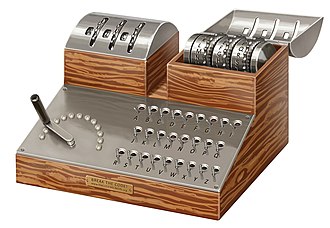Cryptanalysis
Cryptanalysis is the study of analyzing information systems in order to understand hidden aspects of the systems. It is used to breach cryptographic security systems and gain access to the contents of encrypted messages, even if the cryptographic key is unknown. In essence, cryptanalysis is the practice of decrypting a message without access to the key that was used to encrypt it. It is a core aspect of cryptography, which more broadly encompasses the study and practice of techniques for secure communication in the presence of adversaries.
History
The history of cryptanalysis dates back to ancient times, with the earliest recorded instance of cryptanalysis attributed to the Arab mathematician Al-Kindi in the 9th century, who developed a method of decrypting encrypted messages by analyzing the frequency of letters in the Arabic language. This technique, known as frequency analysis, became a fundamental tool in breaking classical ciphers.
Throughout history, the art and science of cryptanalysis have evolved significantly. During World War II, cryptanalysis reached a pivotal point with the efforts of the Allies to decrypt the Enigma machine used by the Axis powers. The work of cryptanalysts like Alan Turing at Bletchley Park in England was crucial in the development of early computers and had a profound impact on the outcome of the war.
Techniques
Cryptanalysis employs a variety of techniques to achieve its goals, including but not limited to:
- Frequency analysis: Analyzing the frequency of letters or groups of letters in a piece of ciphertext. - Known-plaintext attack: Using a segment of known plaintext and its corresponding ciphertext to decrypt the rest of the message. - Differential cryptanalysis: A method that examines how differences in input can affect the resultant difference at the output. - Side-channel attacks: Exploiting physical implementations of a cryptosystem, such as timing information, power consumption, electromagnetic leaks, or even sound to break the system.
Modern Cryptanalysis
In the modern era, cryptanalysis has grown more complex with the advent of sophisticated cryptographic algorithms designed to secure digital communications and transactions. The introduction of public-key cryptography in the 1970s, for instance, presented new challenges and opportunities for cryptanalysts. Today, cryptanalysis involves a deep understanding of mathematics, computer science, and even quantum computing, as researchers explore the potential of quantum computers to break current cryptographic algorithms.
Ethical and Legal Considerations
The practice of cryptanalysis is not without its ethical and legal considerations. While it can be used for legitimate purposes, such as testing the security of cryptographic systems, it can also be employed for malicious purposes, including espionage, identity theft, and unauthorized access to private communications. Consequently, the field operates within a complex legal and ethical framework, varying significantly across different jurisdictions.
See Also
- Cryptography - Cipher - Encryption - Alan Turing - Enigma machine
Transform your life with W8MD's budget GLP-1 injections from $125.
W8MD offers a medical weight loss program to lose weight in Philadelphia. Our physician-supervised medical weight loss provides:
- Most insurances accepted or discounted self-pay rates. We will obtain insurance prior authorizations if needed.
- Generic GLP1 weight loss injections from $125 for the starting dose.
- Also offer prescription weight loss medications including Phentermine, Qsymia, Diethylpropion, Contrave etc.
NYC weight loss doctor appointments
Start your NYC weight loss journey today at our NYC medical weight loss and Philadelphia medical weight loss clinics.
- Call 718-946-5500 to lose weight in NYC or for medical weight loss in Philadelphia 215-676-2334.
- Tags:NYC medical weight loss, Philadelphia lose weight Zepbound NYC, Budget GLP1 weight loss injections, Wegovy Philadelphia, Wegovy NYC, Philadelphia medical weight loss, Brookly weight loss and Wegovy NYC
|
WikiMD's Wellness Encyclopedia |
| Let Food Be Thy Medicine Medicine Thy Food - Hippocrates |
Medical Disclaimer: WikiMD is not a substitute for professional medical advice. The information on WikiMD is provided as an information resource only, may be incorrect, outdated or misleading, and is not to be used or relied on for any diagnostic or treatment purposes. Please consult your health care provider before making any healthcare decisions or for guidance about a specific medical condition. WikiMD expressly disclaims responsibility, and shall have no liability, for any damages, loss, injury, or liability whatsoever suffered as a result of your reliance on the information contained in this site. By visiting this site you agree to the foregoing terms and conditions, which may from time to time be changed or supplemented by WikiMD. If you do not agree to the foregoing terms and conditions, you should not enter or use this site. See full disclaimer.
Credits:Most images are courtesy of Wikimedia commons, and templates, categories Wikipedia, licensed under CC BY SA or similar.
Contributors: Prab R. Tumpati, MD




